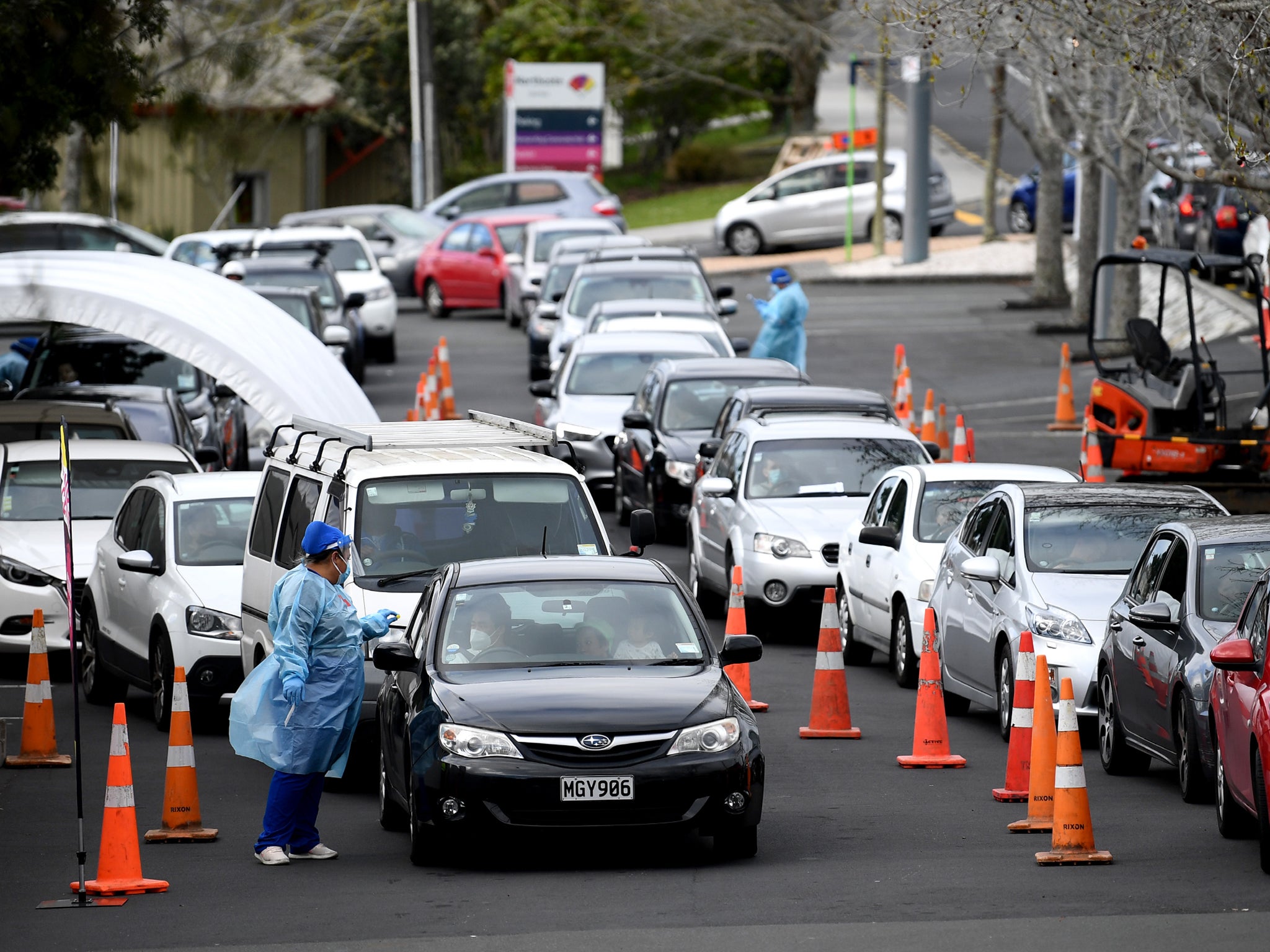Coronavirus: New Zealand suffers worst recession in decades after strict lockdown
Impact of the Auckland lockdown predicted to significantly damage the economy

New Zealand's economy shrank by a record 12.2 per cent in the second quarter due to a strict coronavirus lockdown, but forecasts indicate activity is bouncing back.
Statistics New Zealand released figures Thursday showing GDP had fallen far more than ever previously recorded and signaling the nation of 5 million people is officially in recession for the first time in 11 years. On an annual basis, GDP fell by 2 per cent.
Economists said the decline will likely be followed by a record increase in economic activity during the third quarter as many businesses get back to work.
And forecasts released by the Treasury this week predict unemployment will peak at 7.8 per cent, lower than earlier predictions of nearly 10 per cent.
Many countries have seen large drops in economic activity due to the virus.
When the second quarter began in April, New Zealand was in a full lockdown, which was gradually eased until all restrictions were lifted in June. The largest city Auckland temporarily re-entered a lockdown last month due to a new outbreak of the virus, with the impact of that to be reflected in the third-quarter numbers.
The second-quarter figures showed construction activity declined by 26 per cent, manufacturing fell by 13 per cent, and household spending was down by 12 per cent when compared with the previous quarter.
Kiwibank Chief Economist Jarrod Kerr said there were few surprises in the numbers.
"You lock up the economy, activity falls," he said in a statement. "The focus must now turn to the recovery. And the current quarter looks pretty good. It's the path we take over the next three years that needs attention."
Kerr predicted GDP would jump by 10 per cent in the third quarter, but said more needs to be done over the medium term to return the nation to full employment.
Finance Minister Grant Robertson said the lockdown was necessary to save thousands of lives and get on top of the virus so the economy could bounce back faster. He said the fall in GDP was better than initial Treasury forecasts of a 16 per cent contraction.
New Zealand's government has pumped billions of dollars into the economy to sustain activity and minimize unemployment. As a result, net government debt is expected to shoot up from just over 20 per cent of GDP before the pandemic to 54 per cent of GDP by 2023.
New Zealand continues to pursue a bold strategy of trying to eliminate the virus altogether rather than just contain its spread. It has reported just over 1,800 cases and 25 deaths.



Join our commenting forum
Join thought-provoking conversations, follow other Independent readers and see their replies
Comments